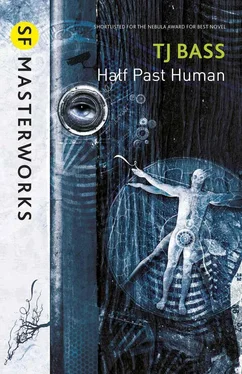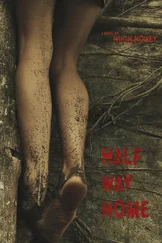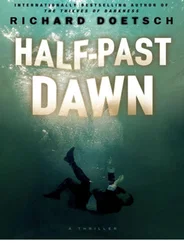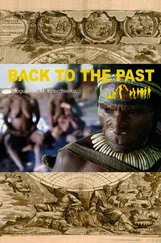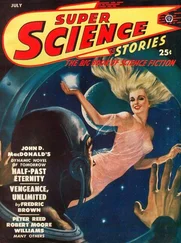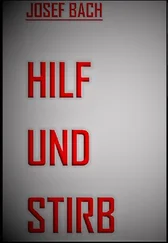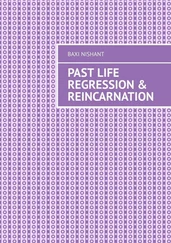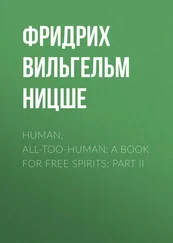Half Past Human
by T. J. Bass
Thomas J. Bassler (1932–2011) was a medical doctor, who for too few years wrote science fiction as T.J. Bass. This book and its sequel, The Godwhale (1974) are the main part of his legacy. In them the conflict between humanity and nature—including humanity’s own nature—is pushed to its limit.
Nature was big in the sixties. So was population, whose growth seemed all the more pressing in cities crowded at the core and sprawling at the edge. Wartime destruction and post-war reconstruction had created in the advanced countries a new landscape of motorway, freeway and high-rise, of suburbia and supermarket. Above it hung a haze of pollutants, and the permanent threat of nuclear attack; beyond it, in what was then called the Third World, growing numbers of undernourished, dark-skinned people poured into slums and shanty towns or slipped silently into the shadows to swell the ranks of nationalist and communist insurgencies.
From Rachel Carson’s Silent Spring (1962) to Paul Ehrlich’s The Population Bomb (1968), bestseller after bestseller sounded the alarm. By the end of the decade many people felt that the megalopolis crushed the human nature within it as much as it despoiled the natural world without. The notion pervaded the counterculture so plangently evoked in Charles Reich’s The Greening of America (1970), with its rejection of consumerism and its embrace of rural, folk, and Native American culture and styles. In this—as in so many other respects—the young radicals were only expressing more strongly, if not always more coherently, a view shared by many of their mainstream elders. Desmond Morris followed up his bestselling zoological analysis of humanity, The Naked Ape (1967)—serialized in the Daily Express —with The Human Zoo (1969), which compared urban humanity to caged animals.
The concern was vividly expressed in SF with John Brunner’s masterpiece Stand on Zanzibar (1968), which draws dire warnings for the human future (exemplified by the violent, decadent, dome-covered New York City of 2010) from John B. Calhoun’s studies of overcrowding in rats. One of the few technologically and ecologically optimistic works from that time, Approaching the Benign Environment (R. Buckminster Fuller et al, 1970) was swiftly countered and sharply criticized in the far more influential The Environmental Handbook (1970), soon to be followed by A Blueprint for Survival (1972) and The Limits to Growth (1972) on the shelves of every long-haired student’s bedsit, including mine.
In Half Past Human , Bass takes these and related environmental and cultural hot topics and turns up the heat a thousandfold. Never mind the three and a half billion of 1968, or the seven billion of Brunner’s 2010 (and ours): Bass projects a global population of three thousand billion. But as the title suggests, and the first page tells us, almost all of the three trillion are not quite human: “mankind was evolving into the four-toed Nebish—the complacent hive citizen.” Stunted, pallid, brittle-boned and short-lived, this genetically engineered and prenatally mutilated subspecies can stand the overcrowding that normal humans can’t, so it lives and in a measure thrives on the stacked levels of underground shaft cities. The seas are sterile. The entire useable surface of every continent is turned over to automated agriculture. The food chain is short (and circular). The scattered million or so surviving five-toed humans skulk and scavenge in these gardens as vermin, spotted by sensors and despatched by hunters. They are the last endangered species. Though savage, they are far from noble. They hunt the hunters, and they eat what they kill.
At first, all the characters are repulsive. The relict humans are cultish, clannish, and cannibals. The Nebish are callous, calculating, and cannibals. Bass describes appearances, physiques, emotions and bodily reactions in the same language, that of physiology. The effect is deeply alienating. Horror and visceral disgust are natural reactions to much that passes—not to mention confusion, as the pace of events is swift. But we know we’re not trapped in the nightmare: two artefacts that are themselves characters, Toothpick and Ball, imply past technological marvels, and hint at some continuation of an earlier human project. The mystery deepens as unauthorized radio messages beam into the underground cities from outside. It is soon apparent that the artificial intelligence that runs Earth Society has found an opponent that matches it in mettle, and in ruthless loyalty to its chosen human breed.
The story that unfolds is increasingly engrossing and entertaining, indeed thrilling. I’ll be blunt: I found it hard to get going, and then I found it impossible to stop. It’s a cracking piece of science fiction, an original and thought-through vision of a post-human world, and it sticks uncomfortably in your head. It’ll make you think differently about a lot of things, including your own body and what you eat. The book’s one glaring flaw is its treatment of women: in human and Nebish society, they exist solely as sex objects and mothers. Bass gives no indication that he notices, let alone cares. The book fails the Bechdel test with flying colours. Mark that down to the blinkers of male-chauvinist, late-sixties counterculture, before Women’s Liberation got on its case.
By the end of the book, Bass has brought us to sympathise with human, Nebish, and machine characters, and to revel in the godlike sport with which he—and the rival AIs—slaughter them in millions or pick them off one by one. To say that this challenges our ethical intuitions is to put it mildly. But our ethical intuitions themselves are less secure than we may think. There is a well-known paradox in moral philosophy, identified years after Bass wrote but implicit in the utilitarian doctrine of the greatest good of the greatest number: the repugnant conclusion—as Derek Parfit (in Reasons and Persons , 1984) called it—that a large population whose lives are barely worth living may be better than a smaller population every one of whose lives are rich and fulfilling.
The brief lives of most of the Nebish are more than barely worth living—they have their little pleasures and rewards, and even joys—and there are three trillion of them. Are cannibalism, mass extinction of all non-edible species, prenatal brain hacking, occasional selective infanticide, and all the other horrors a price worth paying for such an enormous aggregate of dim happiness? Can we rationally and honestly prefer the violent, ignorant, brutish lives of savages, just because the savages share the full complement of our genes? Are we not, perhaps, being something close to racist when we side with Homo sapiens against Homo superior ? Especially as the hive can itself engender at will new generations of the five-toed, if it decides it needs them for its own projects, all to the good of the greatest number? Isn’t there something a bit fascist about our instinctive sympathies here?
There is a terrible Darwinian and utilitarian logic to Earth Society, of which Bass is well aware. Any successful human civilization, on this planet or on far-flung space colonies, carries the seed of the hive. Whether that seed grows is up to us, but there’s a price to be paid, too, for nipping any such sinister development in the bud.
By making the repugnant conclusion literally repugnant, and by bringing the stern alternatives to it home to us like a hunter’s bloody trophy, Bass makes us question some of our unthinking priorities, and does us all a powerful amount of good.
Ken MacLeod
Читать дальше
